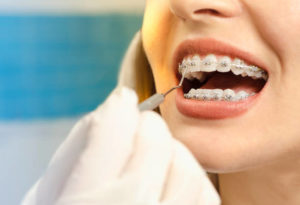A healthy smile is essential to truly feeling your best. Maintaining such a healthy smile goes beyond daily brushing and flossing; it requires regular visits to a trusted dentist in Bundoora. At Greenwood Plenty Dental Care, we provide specialised general dentistry services to ensure that your oral health is in optimal condition. Whether you need routine check-ups, emergency dental services, or specialised dental treatments, our clinic is equipped to handle all your dental needs.
Comprehensive Dental Examinations
Regular dental exams are the cornerstone of preventive oral health care. During these visits, our skilled Bundoora dentists thoroughly check for signs of decay, gum disease, and other oral health issues. Early detection is essential to preventing complications and ensures that any problems are managed before they escalate.
Professional Cleaning
No matter how diligent you are with your home care, professional cleanings at our Bundoora dental clinic are essential. These cleanings remove plaque and tartar buildup that regular brushing and flossing can’t, helping to prevent periodontal disease and refresh your oral hygiene.
Preventive Measures
In addition to cleanings and exams, we offer a range of preventive services including dental sealants and fluoride treatments. These are especially beneficial for our younger patients, making our facility a go-to kids’ dentist in Bundoora. We also guide proper dental care routines that you can follow at home.
Specialised Treatments
For those requiring more specific treatments, such as root canal therapy for a broken tooth or orthodontic care like braces and Invisalign, our dental clinic in Bundoora is fully equipped. Our approach ensures that you receive the most effective treatment to restore and maintain your dental health.
At Greenwood Plenty Dental Care, we believe that general dentistry is fundamental to keeping your smile bright and healthy. With a comprehensive range of services from teeth whitening to emergency dental care, Invisalign, orthodontic treatments, root canals, dental treatments, and more, our dental clinic stands ready to support every aspect of your oral health.
Trust our team to be your partner in maintaining a beautiful, healthy smile for years to come. Whether you’re seeking a routine check-up or need urgent care, contact us at (03) 9466 7843 today to see how we can help.










